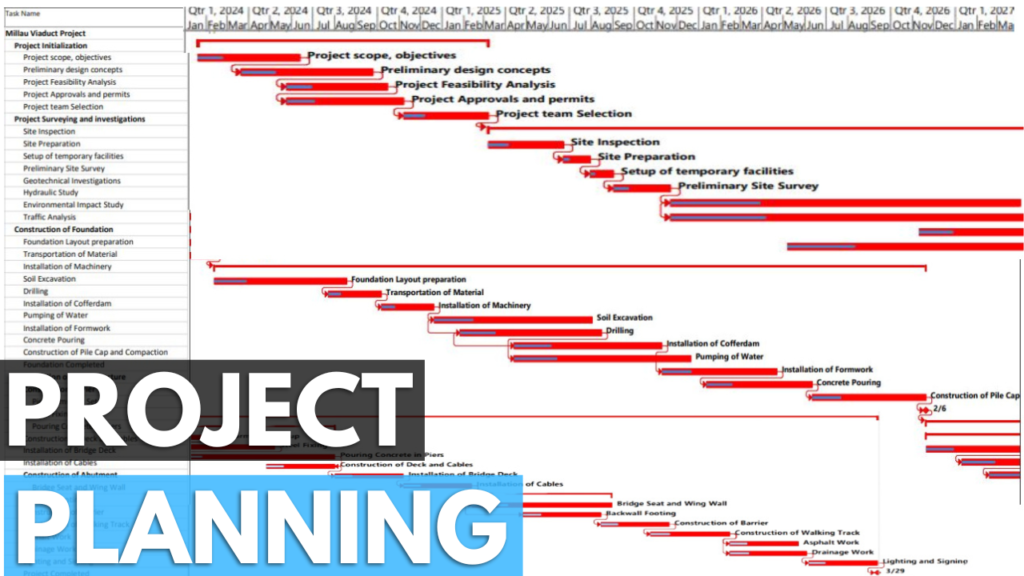Civil engineering is a broad career that requires a combination of technical knowledge, problem-solving talents, and interpersonal skills. Whether you’re just starting out or seeking to grow in your job, acquiring a few key skills is critical to your success. This essay delves into the 10 most Important Skills for Civil Engineers civil engineer should possess, providing a road map for aspiring professionals and a refresher for experienced engineers.
Strong Technical Knowledge
At the foundation of civil engineering is an in depth comprehension of engineering principles. This involves a strong understanding of mathematics, physics, and materials science, which are essential for designing and analysing constructions, roads, bridges, and other infrastructure projects. To remain competitive, civil engineers must stay up to speed on industry standards, norms, and software tools such as AutoCAD, STAAD Pro, and SAP2000.
Important Skills for Civil Engineers-Softwares
- AutoCAD is widely used for draughting, design, and modelling.
STAAD Pro is used for structural analysis and design.
SAP2000 is another prominent software for structural analysis.
Revit is used for building information modelling (BIM).
ETABS– focused on building analysis and design.
Primavera P6 – Project management software designed specifically for large-scale projects.
Civil 3D specialises in civil engineering design and documentation.
MATLAB is used for advanced mathematical modelling and simulations.
MS Project is a project management program for scheduling and tracking progress.
Plaxis is software for geotechnical analysis and design.
Project Management Skills for civil engineers
Civil engineers often manage complex tasks that involve careful scheduling, resource allocation, and time management. Project management skills ensure that projects are executed on schedule, within budget, and to the highest quality standards. Experience with project management tools such as MS Project or Primavera P6 is also quite advantageous.
See: How to schedule construction projects
Problem-Solving Abilities
Every engineering project brings about different problems that require creative solutions. A civil engineer’s capacity to think critically and devise effective solutions to unanticipated challenges is vital. So, Strong problem-solving skills are essential for resolving design flaws and addressing on-site issues.
Communication Skills
Effective communication is essential for the success of any endeavour. Civil engineers must communicate complicated technical information to clients, stakeholders, and team members in an understandable and succinct manner. This includes reporting, presenting, and attending meetings. Good communication skills also contribute to better teamwork and collaboration.
Leadership and Teamwork
Civil engineers usually supervise teams of other specialists, ranging from architects to construction workers. Effective leadership entails mentoring the team, making educated decisions, and cultivating a collaborative culture. Simultaneously, being a team player is also crucial because it ensures that projects go well.
Creativity and Innovation
Civil engineering is more than just following known methods; it is also about innovation. Engineers are frequently challenged to think imaginatively in order to build sustainable and cost-effective solutions. Whether it’s incorporating green building materials or developing new construction procedures, creativity is a significant tool.
Knowledge of Industry Regulations
Civil engineers must be familiar with local, national, and international building codes and regulations. Compliance with these regulations is mandatory since it ensures the safety, functionality, and legality of the structures they design and construct. So, regular updating knowledge in this field is critical skills for civil engineers.
Time Management
Effective time management is critical in the fast-paced profession of civil engineering. So, Engineers must manage many activities, fulfil deadlines, and guarantee that projects advance as planned. Effective time management improves productivity and reduces project delays.
Adaptability and Lifelong Learning
Civil engineering continues to grow with new technology, materials, and procedures. So, it is essential for Civil engineers to remain adaptive and dedicated to lifelong learning to stay in competitio,. This could include earning advanced degrees, attending workshops, or gaining certifications in new fields such as sustainable engineering or smart city infrastructure.
Attention to Detail
Precision is essential in civil engineering. A little mistake in computation, design, or construction can have serious implications, including structural failures. As a result, civil engineers must have a keen eye for detail and take a methodical approach to their job to ensure correctness in all aspects of their projects.
These 10 most important skills for civil engineers to be acquired and honed before one may become a good civil engineer. From technical knowledge and problem-solving to leadership and adaptability, each talent is essential for becoming a well-rounded and competent engineer. So, By focussing on these areas, aspiring civil engineers can set themselves up for long-term success in this exciting and gratifying career.
Watch full video here:







